Posts selected fromManagement Blog - Engineering Blog - Investing Blog and other blogs - Organizations as Social Systems
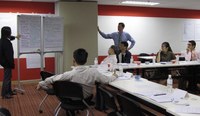 Organizations are social systems made up of people.
Social systems often amplify what happens.
If good things happen, more good things often follow.
When bad things happen, more bad things often follow.
To improve it is wise to this into account and design elements of the management system to encourage the amplification of what is good and that seeks to stop what is bad from being amplified. continue reading: Organizations as Social Systems - Testing Smarter with Ajay Balamurugadas
 Ajay:
To be convincing, you might have to work on your reputation first. Work on it. People most of the times say "No" until they are convinced. Once you highlight the benefits of pairing and collaboration, people will listen.
continue reading: Testing Smarter with Ajay Balamurugadas - Creating a Deep Commitment to Delighting Customers
Those organizations that can delight customers today and take the steps today that position the organization to delight customers in the future will prosper and grow. But building and maintaining a management culture that reinforces delighting customers and long term thinking is quite difficult.
...
Successfully delighting customers requires much more than a wish that customers were delighted with our organization. It requires knowing what your customers want and creating system that can reliably delivering that to customers.
continue reading: Creating a Deep Commitment to Delighting Customers - The Transformation is Everybody’s Job
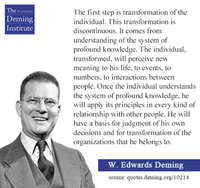 There are quotes you can pick to make it seem like executives are responsible for the system and individuals workers have little impact on overall results – “A bad system will beat a good person every time.” This shows the limitation of isolated quotes more than anything else.
Complex systems have many leverage points and can be influenced in many ways. It is unreasonable to have a broken management system and blame those working within it for the naturally poor results than such a system creates. And executives have more authority and thus more responsibility for creating a good management system that is continually improving. But such a management system requires that everyone in the organization is contributing.
Those with authority must modify the management system to allow everyone to contribute. But that doesn’t mean everyone else just sits by waiting for those with more authority to transform the organization. Transformation doesn’t work that way. It is a dynamic, interconnected process. It isn’t as simple as turning on a light (or declaring this is our new transformed management system). continue reading: The Transformation is Everybody’s Job - We are Not Us Without The Microbes Within Us
Avoiding bacteria is not feasible. Our bodies have evolved with this constant interaction with bacteria for millions of years. When we are healthy bacteria have footholds that make it difficult for other bacteria to gain a foothold (as does our immune system fighting off those bacteria it doesn’t recognize or that it recognized as something to fight).
Human health is a fascinating topic. It is true antibiotics have provided us great tools in the service of human health. But we have resorted to that “hammer” far too often. And the consequences of doing so is not understood. We need those scientists exploring the complex interactions we contain to continue their great work. continue reading: We are Not Us Without The Microbes Within Us - Robots for Health Care from Toyota
Most often innovation efforts take the form of understanding the jobs your customers are using your products and service for now and developing new solutions to delight those customers. This is difficult for companies to pull of successfully.
Occasionally innovation involves meeting completely new needs of customers. For example Toyota started as a loom company and is now known as a car company. Making such a radical change is not often successful.
Will Toyota be able to add robots to the products it produces successfully? I believe they have a chance. But it won’t be easy. continue reading: Robots for Health Care from Toyota - Apostle Islands National Lakeshore, Wisconsin
 Photos from my visit to the Apostle Islands National Lakeshore in northern Wisconsin. The park on the shores of Lake Superior provides some wondeful hikes and boat rides to take in the natural world. continue reading: Apostle Islands National Lakeshore, Wisconsin - Testing Smarter with Michael Bolton
 Michael Bolton is a consulting software tester and testing teacher who helps people solve testing problems that they didn’t realize they could solve. He is the co-author (with senior author James Bach) of Rapid Software Testing, a methodology and mindset for testing software expertly and credibly in uncertain conditions and under extreme time pressure. continue reading: Testing Smarter with Michael Bolton - Using Scientific Knowledge to Drive Policies that Create a Better World
We can’t afford to elect people that don’t have an understanding of how to make wise decisions or how to ensure scientific knowledge forms the basis of policy when it should, such as: overfishing, pollution, global warming, the health care benefits vaccines provide when they are used properly, the dangers of abusing antibiotics, etc..
We need to elect leaders like those that took the steps to have the EPA clean up the incredibly polluted USA. We need to elect leaders that put the policies in place to reduce the overfishing in our waters. We need to elect leaders that care about our country and will learn what they need to from those that know the science. continue reading: Using Scientific Knowledge to Drive Policies that Create a Better World - Testing Smarter with Mike Bland
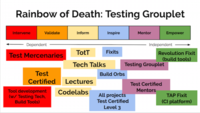 This interview with Mike Bland is part of my series of “Testing Smarter with…” interviews: gaining insights and experiences from many of the software testing field’s leading thinkers.
it’s not about defects; it’s about feedback and collaboration. If you arrange incentives to produce an adversarial relationship between team members, e.g. if developers are incentivized to minimize defects and testers are incentivized to report defects, then that’s a house divided against itself.
Mike Bland aims to produce a culture of transparency, autonomy, and collaboration, in which “Instigators” are inspired and encouraged to make creative use of existing systems to drive improvement throughout an organization. The ultimate goal of such efforts is to make the right thing the easy thing. He's followed this path since 2005, when he helped drive adoption of automated testing throughout Google as part of the Testing Grouplet, the Test Mercenaries, and the Fixit Grouplet.
my advice to both developers and testers is to identify the priorities, the social structures and dynamics at play in the organization. How can you work with these structures and dynamics instead of against them—or do you need to create a culture of open communication and collaboration in parallel with (or even before) communicating the testing message?
continue reading: Testing Smarter with Mike Bland - Historical Global Economic Data and Current Issues for Globalization
China and India/Pakistan accounted for 73% of the world manufacturing output in 1750. They continued to account for over half of global output even as later as 1830. By 1913, however, their share had dropped to 7.5%.
That shows how quickly things changed. The industrialization of Europe and the USA was an incredibly powerful global economic force. The rapid economic gains of Japan, Korea, Singapore, China and India in the last 50 years should be understood in the context of the last 200 years not just the last 100 years.
...
I believe he is onto something. I have for years been seeing the strains of “comparative advantage” in our current world economy. That doesn’t mean I am not mainly a fan of freer trade. I am. I don’t think complex trade deals such as TPP are the right move. And I do think more care needs to be taken to consider current economic conditions and factor that into our trade policies.
...
The complexity of the economic consequences of international trade require knowledge, skill, patience and practical thinking to create economic gains going forward. I am worried about the foolish leaders we are electing in many of the rich countries recently. They do not appear to understand complexity or value the importance of expertise, uncertainty and implementation of economic policy. The complexity today requires more understanding, study, learning and care than was required last century but instead we are electing people with less wisdom than ever (and we were not electing incredibly wise people very often in the past). continue reading: Historical Global Economic Data and Current Issues for Globalization - Testing Smarter with Alan Page
 This interview with Alan Page is part of my series of “Testing Smarter with…” interviews: gaining insights and experiences from many of the software testing field’s leading thinkers.
The biggest thing I look for in testers is a passion and ability to learn. I've interviewed hundreds of testers... The testers who really impress me are those who love to learn - not just about testing, but about many different things. Critical thinking and problem solving are also quite important.
Alan spent over twenty years at Microsoft working on a variety of operating systems and applications in nearly every Microsoft division and now works at Unity.
Combinatorial testing is actually pretty useful in game testing. For example, consider a role-playing game with six races, ten character classes, four different factions, plus a choice for gender. That's 480 unique combinations to test! Fortunately, this has been proven to be an area where isolating pairs (or triples) of variations makes testing possible, while still finding critical bugs.
continue reading: Testing Smarter with Alan Page - Testing Smarter with Dorothy Graham
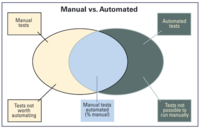 This interview with Dorothy Graham is part of my series of “Testing Smarter with…” interviews: gaining insights and experiences from many of the software testing field’s leading thinkers.
The best way to have fewer bugs in the software is not to put them in in the first place. I would like to see testers become bug prevention advisors! And I think this is what happens on good teams.
continue reading: Testing Smarter with Dorothy Graham - Duoyishu Village, Yunnan, China
 Duoyishu Village is in Yuanyang County, Yunnan, China. I took a private tour for my travels through Yunnan to make things easy on me (China and Kenya are the only places I have done this – because they are more difficult to travel by yourself than most places are). continue reading: Duoyishu Village, Yunnan, China - The Amazing Reality of Genes and The History of Scientific Inquiry
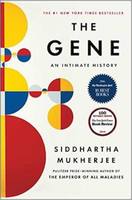 The Gene by Siddhartha Mukherjee is a wonderful book. He does a great job of explaining the history of scientists learning about genes as well as providing understandable explanations for the current scientific understanding of genes and how they impact our lives.
As I have mentioned before, I find biology fascinating even though I found biology classes utterly boring and painful. I wish everyone could learn about biology with the insight people like Siddhartha Mukherjee provide. continue reading: The Amazing Reality of Genes and The History of Scientific Inquiry
|